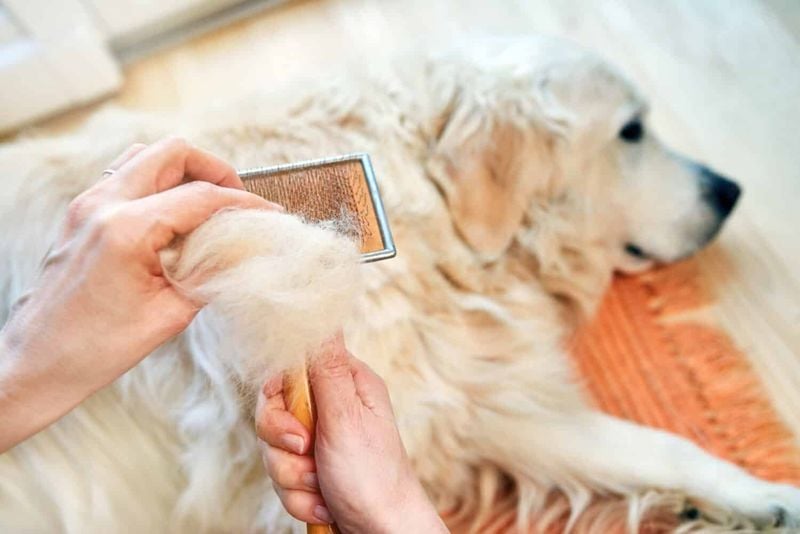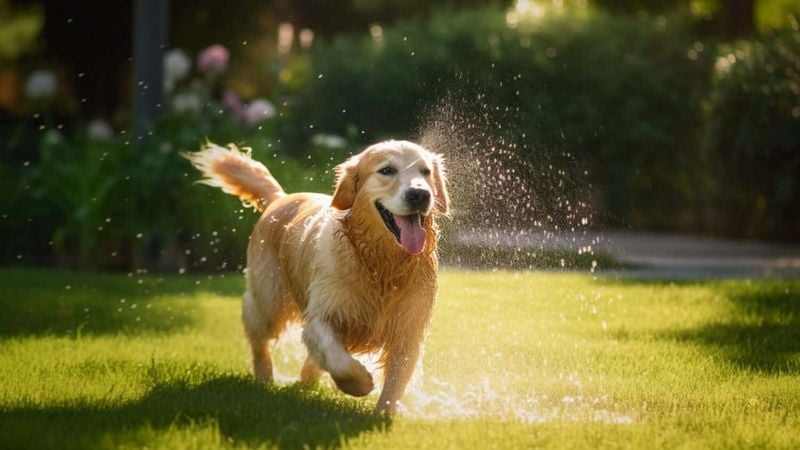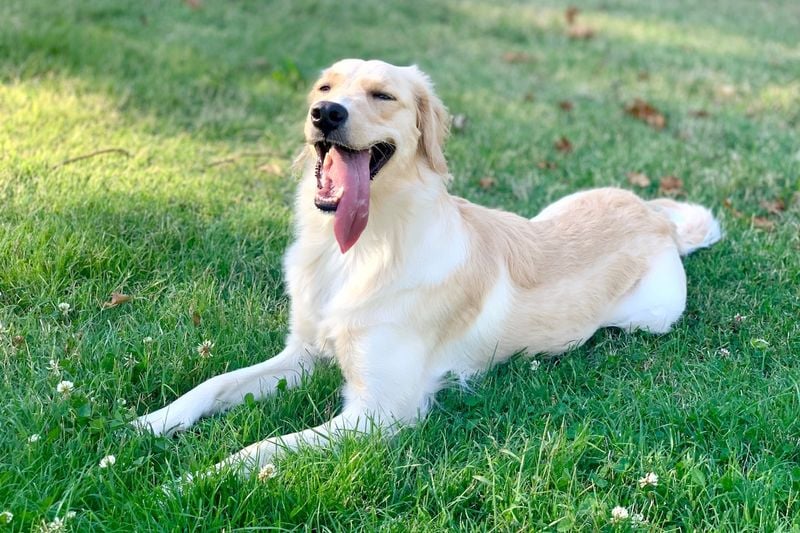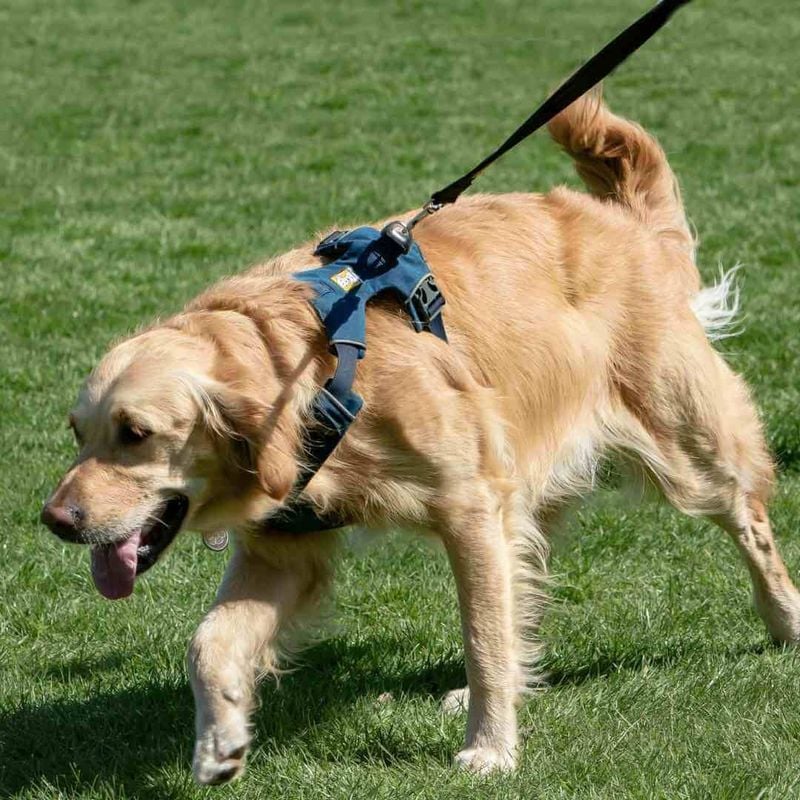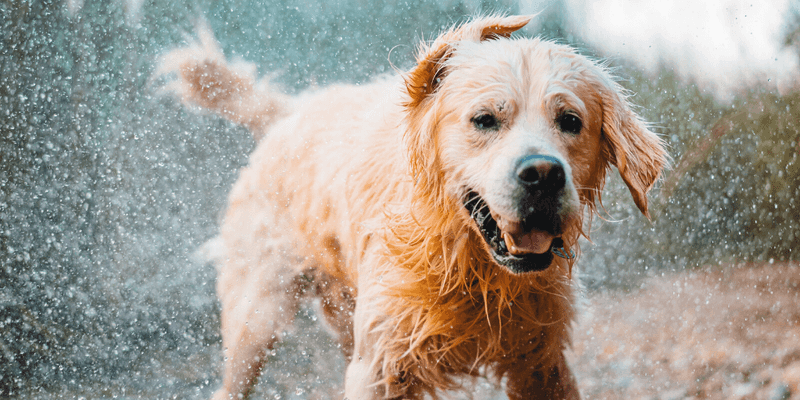13 Reasons Golden Retrievers Aren’t the Dream Dog Everyone Says They Are
Golden Retrievers often top the list of America’s favorite family dogs. With their sunny disposition and flowing blonde coats, they seem perfect in every commercial and movie.
But behind that cheerful smile and wagging tail lurks a reality many new owners aren’t prepared for. Before you bring home that adorable golden puppy, consider these surprising downsides that might make you think twice.
1. Fur Everywhere – All The Time
Golden Retrievers don’t just shed – they explode with fur. Twice yearly, they “blow” their coats completely, creating fur tumbleweeds that roll across your floors and cling to everything you own.
Even between seasonal sheds, expect a daily sprinkle of golden hairs on your clothes, furniture, food, and somehow inside closed drawers. Black clothing becomes instantly decorated, and your vacuum cleaner will become your most-used appliance.
Many owners report filling entire garbage bags with fur during brushing sessions. No amount of cleaning fully eliminates the golden glitter that becomes part of your home’s decor.
2. Grooming Demands That Never End
Those beautiful flowing coats require serious maintenance. Without regular brushing (we’re talking several times weekly), your Golden’s fur will mat painfully against their skin, especially behind ears and under legs.
Their feathered tails and legs collect mud, leaves, and debris like magnets. After walks, you’ll spend time picking out burrs and checking for ticks hidden in their thick undercoat.
Professional grooming costs add up quickly – expect to pay $75-100 every 6-8 weeks for proper care. Between baths, their coat develops a distinctive doggy odor that permeates your home, requiring regular washing that further dries their skin.
3. Health Issues That Break Hearts And Banks
Behind that happy exterior lurks a breed prone to expensive and heartbreaking health problems. Hip and elbow dysplasia affect nearly 20% of Goldens, leading to painful arthritis and potential surgery costing thousands.
Cancer rates are alarmingly high – over 60% of Golden Retrievers develop cancer, among the highest rates of any breed. Heart problems like subvalvular aortic stenosis can require lifetime medication.
Eye conditions including cataracts and progressive retinal atrophy are common, potentially leading to blindness. Skin allergies and hot spots require constant vigilance, especially in humid weather. These health concerns mean frequent vet visits that quickly drain savings accounts.
4. Energy Levels That Never Quit
That adorable puppy needs HOURS of exercise daily – not just a quick walk around the block. Golden Retrievers were bred as working dogs, and their energy reserves seem bottomless without proper outlets.
Rain or shine, snow or heat wave, these dogs need vigorous daily activity. Skipping exercise leads to destructive behaviors as they find their own entertainment. Many owners underestimate the time commitment – at least an hour of active exercise daily is the bare minimum.
Even senior Goldens maintain surprising energy levels. The reality of 12+ years of daily commitment to exercise needs catches many owners by surprise, especially during extreme weather or busy work periods.
5. Destructive Tendencies When Bored
Leave a Golden Retriever alone with pent-up energy, and return to discover your home’s new redesign. Couch cushions disemboweled, shoes transformed into chew toys, and drywall mysteriously sporting new ventilation holes.
Their powerful jaws make quick work of supposedly “indestructible” toys. Books, remote controls, and cell phones hold particular appeal as chewing targets. One bored afternoon can result in hundreds of dollars of damage.
Even well-trained Goldens may resort to destructive behaviors when their mental and physical needs aren’t met. Their intelligence works against them – they’ll problem-solve their way into closed pantries and supposedly dog-proof garbage cans with impressive determination.
6. Terrible Watchdogs With No Protective Instinct
Expecting your Golden to guard your home? Think again! These friendly furballs typically greet intruders with wagging tails and slobbery kisses, possibly showing them where you keep the valuables.
Their friendly nature makes them more likely to welcome strangers than warn you of danger. Many Golden owners report their dogs happily greeting maintenance workers and delivery people with the same enthusiasm as family members.
Their bark might sound impressive, but it’s usually excitement, not warning. If home security is your priority, this breed’s loving disposition works against you – they’re genetically programmed to love everyone they meet, making them possibly the worst guard dogs in the canine world.
7. Velcro Dogs With Separation Anxiety
Golden Retrievers don’t understand personal space. They follow you EVERYWHERE – including the bathroom – and develop severe anxiety when left alone. Those soulful eyes watching your every move might seem cute initially, but the constant shadowing becomes overwhelming.
Working from home? Expect furry interruptions during important calls. Many develop serious separation anxiety, leading to destructive behaviors, excessive barking, or even self-harm when left alone.
Their neediness extends to physical contact – they lean against legs, place paws on laps during meals, and insist on sleeping touching their humans. For those valuing independence, this breed’s constant need for companionship can feel suffocating rather than endearing.
8. Budget-Busting Expenses
The financial reality of Golden ownership surprises many new owners. Beyond the initial $1,500-3,000 purchase price from reputable breeders, ongoing costs accumulate rapidly.
Food expenses alone reach $60-100 monthly for quality nutrition. Preventative medications for heartworm, fleas and ticks add another $300-500 annually. Regular vet visits, vaccinations, and inevitable health issues mean medical expenses averaging $1,500 yearly – assuming no major health crises.
Factor in professional grooming ($75-100 every 8 weeks), replacing destroyed toys and bedding, training classes, and boarding when you travel ($50+ daily). The lifetime cost of Golden ownership easily exceeds $20,000, making them one of the more expensive breeds to maintain properly.
9. The Puppy Cuteness Fades Fast
That tiny golden ball of fluff transforms with shocking speed. By 6 months, your adorable puppy resembles a gangly teenager with adult-sized paws and endless energy, but limited coordination.
Full grown, male Goldens reach 75 pounds or more – no longer the portable puppy you envisioned carrying in your tote bag. Their size means they accidentally knock over children, sweep coffee tables clear with enthusiastic tail wags, and take up significant space on furniture.
Many owners aren’t prepared for how quickly puppies grow or how large adult Goldens actually are. That cute puppy stage lasts mere weeks before you’re living with a full-sized dog that maintains puppy-like behavior for years while occupying significant household real estate.
10. Training Challenges That Require Consistency
Despite their intelligence, Golden Retrievers require extremely consistent training from day one. Their enthusiasm often overrides their listening skills, especially around distractions like other dogs or people.
Without proper training, their size and strength become problematic. A full-grown Golden can easily pull an unprepared owner off balance during walks. Their natural retrieving instinct means they grab anything interesting – including children’s toys, laundry, or food left unattended.
Many owners underestimate the time commitment for proper training. Puppy classes aren’t enough – Goldens need ongoing reinforcement throughout adolescence (which lasts until age 2-3) to become well-mannered adults. Without this investment, their friendly exuberance quickly becomes unmanageable.
11. The Unmistakable Golden Retriever Smell
That distinctive doggy odor becomes your home’s signature scent with a Golden. Their oily double coat traps odors and produces a musky smell that permeates furniture, car interiors, and clothing.
After swimming or rain exposure, the wet dog smell reaches epic proportions. Their love of water combined with their absorbent coat means they soak up and distribute moisture throughout your home.
Regular bathing helps temporarily but strips natural oils, causing skin issues and paradoxically increasing oil production. Even with meticulous grooming, most Golden owners admit their homes have a permanent doggy aroma that visitors notice immediately. Air fresheners and candles become essential household items in futile attempts to mask the unmistakable Golden Retriever bouquet.
12. Space Requirements That Shrink Your Home
Golden Retrievers need space – lots of it. Their size and energy level make apartment living challenging at best and impossible at worst. They don’t just occupy physical space; their belongings multiply across your home.
Large beds, crates, food and water stations, toy collections – all consume valuable real estate. Their tendency to sprawl means they somehow occupy entire couches despite technically fitting in smaller spaces.
Outdoor space requirements are equally demanding. Without a securely fenced yard, managing their exercise needs becomes a significant daily challenge. Many landlords restrict large breeds or charge substantial pet deposits, limiting housing options for Golden owners. Their presence effectively reduces your usable living space by 25% or more.
13. Heartbreakingly Short Lifespans
Perhaps the cruelest reality of Golden ownership is their brevity in our lives. With an average lifespan of just 10-12 years, these beloved companions leave us far too soon.
Their later years often involve managing painful arthritis, decreased mobility, and increasing medical interventions. Many Goldens develop cancer between ages 8-10, leading to difficult treatment decisions and substantial veterinary expenses during their senior years.
The emotional toll of watching a once-vibrant companion slow down catches many owners unprepared. The intensity of the human-Golden bond makes their relatively short lifespan particularly devastating. By the time they’ve fully matured from rambunctious puppies into perfect companions, their golden years are already approaching.


